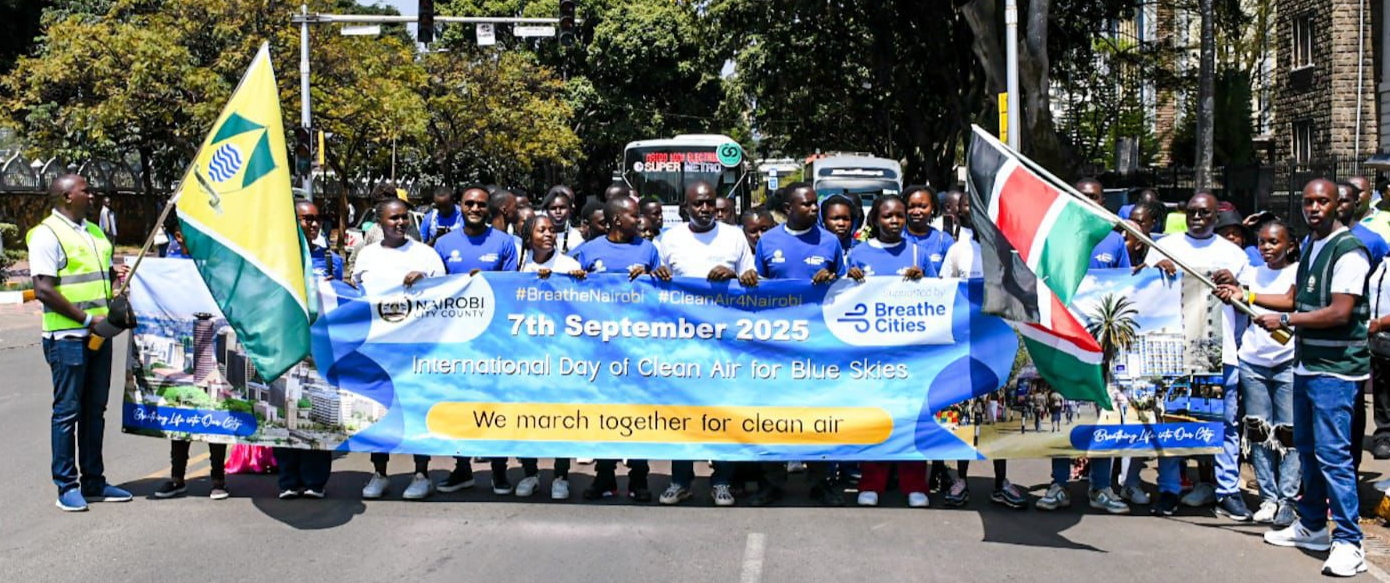
Nairobi came to a symbolic standstill on Sunday as motorists across the city switched off their engines to mark the International Day of Clean Air for Blue Skies. For five minutes, intersections like Kencom, Moi Avenue, and Kenyatta Avenue fell silent in a powerful statement against the city’s worsening air pollution crisis, which claims more than 5,000 Kenyan lives every year.
The “Stop the Engines” action was followed by a colorful procession through the city centre, drawing in youth, commuters, and county officials. Nairobi County’s Chief Officer of Environment, Geoffrey Mosiria, urged drivers to take individual responsibility.
“When your car is not in motion, switch off your engine. Small actions add up and can make a difference to the air we all breathe,” he told matatu operators and motorists gathered at Kencom.
The campaign comes as Nairobi grapples with troubling data: the city is now ranked the second most polluted in Africa, with average fine particulate matter (PM2.5) levels nearly three times above World Health Organization (WHO) standards. Experts warn that unless urgent action is taken, pollution-related deaths and illnesses could rise by more than 50% by 2050, disproportionately hitting vulnerable groups.
For drivers like Vincent Ogachi, who operates with Super Metro, the message resonated.
“I have learned that air pollution is a danger to my health. As a driver, I now know I should switch off my engine when not moving so people around can breathe clean air,” he said.
The day’s events culminated at Central Park, where schoolchildren who took part in an Air Quality School Competition were celebrated for innovative projects tackling pollution. Exhibitions showcased clean energy and transport solutions under the Breathe Nairobi initiative, part of the global Breathe Cities program supported by the Clean Air Fund, C40 Cities, and Bloomberg Philanthropies. The program aims to cut urban air pollution by 30% by 2030.
Nairobi’s challenges are complex, spanning transport emissions, industrial output, indoor smoke, and waste burning. Yet officials hope the citywide show of unity can spark long-term commitment. “This is about more than one day — it’s about building a culture where clean air is seen as a right, not a luxury,” Mosiria said.